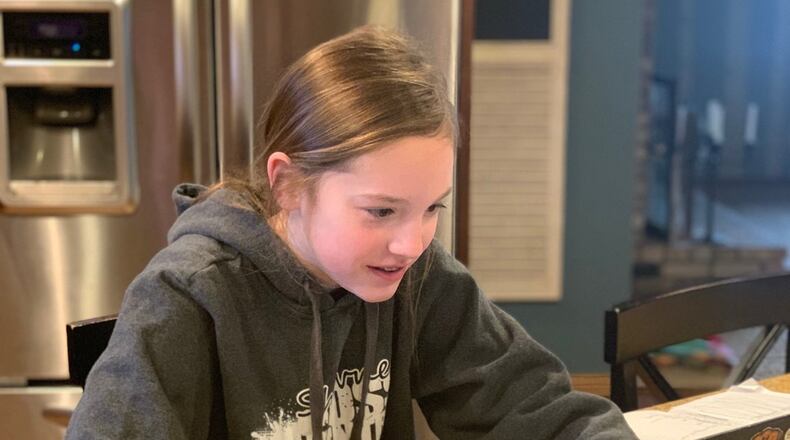“Although not perfect, we have had a great response from the families we serve,” said Josh Jennings, Founding Director. “The schedule we developed for our students allows for routine but at the same time flexibility with submission of their work.”
The Academy already had a system in place to move to online education, including issuing MacBook Air laptops to each student at the beginning of the school year.
“Throughout the year, we do approximately six virtual days for our students already. Those days give teachers the opportunity for professional development,” said Jennings.
READ: Clark State nursing, EMS programs donate supplies to local hospital, clinic
Jennings said both the students and the academy were able to quickly transition.
“We quickly transitioned to a plan that allowed for a much richer experience, where teachers are available all day during the school day,” he said. “All students log on to a system we use called Agricultural Experience Tracker (AET) for attendance each day. They then go through an entire “school day” where they connect with every instructor they have in their class schedule.”
Many of the learning opportunities are through live-streaming, including ways for counselors and intervention specialist to also connect and serve the students, Jennings said.
“Many of these opportunities are through live-streaming, which is through the Learning Management System (LMS) we use called Schoology,” he said. “Although nothing replaces the quality of being in a classroom face-to-face with an instructor, we are confident that what we have implemented is rich in context and high on connecting with students virtually.”
READ: Coronavirus: Clark County companies adapt to state order, some to cease production
As the academy was anticipating the potential closure, Jennings said, they were able buy hot spots for students with limited internet access as well as extend their Wi-Fi.
“We audited our data on students with limited internet access a few weeks ago. We then purchased hot spots for all of those students and will be distributing those in the coming days,” he said shortly after schools closed. “In addition, we worked to extend our Wi-Fi to the school parking lot so students could come and connect there while remaining in their vehicles.”
Jennings said the GISA also reaches out to parents to check on students during the break.
“We are constantly reaching out to parents by phone to see how their students are getting along, especially to our special education population, our students with limited access and those who don’t sign on during daily attendance,” he said.
About the Author
